Defense & Security Archive
Free Newsletter

Armenia and Azerbaijan, former Soviet republics in the South Caucasus, have been at war for two decades over the disputed territory of Nagorno-Karabakh, a separatist ethnic-Armenian province internationally recognized as part of Azerbaijan but occupied since 1994 by Armenia. Over the past week, renewed fighting has left eight soldiers dead. The outbreak of violence along the border, which comes as U.S. Secretary of State Hillary Clinton visits the region, underscores the difficulty in resolving this not quite frozen conflict. Amanda Paul, a policy analyst and expert on the South Caucasus at the European Policy Center, talked to Trend Lines about […]
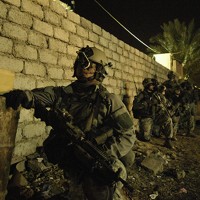
In late-April, according to reporting by the New York Times, the U.S. Congress did something remarkable: It said no to U.S. Special Operations Command. Asked by the command for new authorities to train security forces from Africa to the Middle East, a confused legislative branch, backed by the State Department and the rest of the U.S. military, denied the request. The request itself, though, reveals something of the ambitions harbored by the command. With its confidence boosted by operational successes and the esteem in which it is held, the command is marketing its units as the weapon of choice for […]
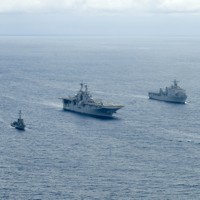
U.S. Defense Secretary Leon Panetta made news this weekend when he announced that the U.S. Navy would move the bulk of its fleet to the Pacific in coming years as part of the Obama administration’s military rebalancing program. But the declaration should have come as no surprise, as the Pentagon has been increasing the share of its assets in the Pacific for several years already. Panetta was attending the 11th International Institute of Strategic Studies (IISS) Asia Security Summit, widely known as the Shangri-La Dialogue, in Singapore. In his speech, Panetta emphasized that the United States, after a decade of […]
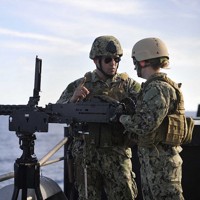
With budgetary constraints looming and global priorities shifting, the U.S. military is in the process of pursuing leaner and more adaptive ways to achieve U.S. national security objectives around the globe. This effort is in accordance with the Department of Defense’s (DOD) 2012 Defense Strategic Guidance (.pdf), which recognizes the need for the military to rebalance toward the Asia-Pacific region and sustain its focus on the Middle East, while maintaining current defense commitments in other parts of the world. One of the new approaches being developed is the Regionally Aligned Brigade concept, through which each regional combatant command (COCOM) would […]
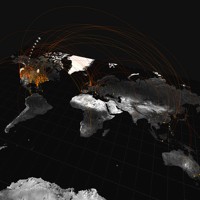
In recent years, cyberattacks against the governments and business entities of economically developed and technologically advanced nations have proliferated, with the purpose of such attacks increasingly turning toward economic information collection and industrial espionage. As adversaries have expanded their computer network operations, the use of new venues for intrusions has increased, and the increasing use of portable devices that connect to the Internet and other networks will only create new opportunities for malicious actors to conduct espionage. Meanwhile, the trend among both corporations and government organizations toward the pooling of information processing and storage will present even greater challenges to […]
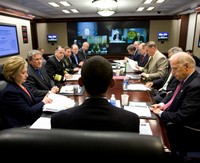
Since the fall of the Soviet Union, the hostilities that historically divided the Cold War’s political and military opponents have cooled, but a heightened intensity in espionage has become evident as well. New antagonists have surfaced as old enemies seemingly became allies; nonstate actors occasionally have become as dangerous and influential as nations with standing armies; and the computer and satellite have replaced lapel cameras and microfilm stashed in shoe heels as preferred methods of espionage. Predictably, the playing field of global espionage has become more sophisticated as well. Cyberspace and outer space have become espionage battlegrounds where fortunes are […]
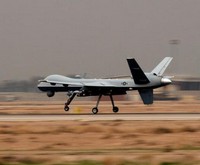
In the run-up to Sept. 11, 2001, the CIA and the 15 other agencies of the U.S. intelligence community were increasingly preoccupied by the terrorist threat emanating from the Middle East. The previous decade had represented a long and difficult transition for U.S. intelligence from the requirements of Cold War espionage and denied-area tradecraft as well as the more brutal operational tasks associated with helping the Afghan mujahedeen chase the Soviets from Afghanistan. Al-Qaida’s brutal attacks on the U.S. Embassies in Dar-es Salaam and Nairobi in 1998 and on the USS Cole in 2000 had already raised the alarm. But […]

The Obama administration, supported by the U.S. military, is currently trying to negotiate an International Space Code of Conduct to protect the space environment. To gain support for the effort, the administration will have to overcome objections from some members of Congress, who often cite the ambitious and supposedly aggressive nature of Chinese space activities as the reason why the U.S. should not agree to international accords regarding space. The United States has the most space assets in orbit — and is the most dependent on them — but it is not the only country with space capabilities. Sustaining the […]

In May, Brazilian President Dilma Rousseff formally inaugurated a truth commission to examine human rights abuses that occurred during Brazil’s period of military rule. In an email interview, Par Engstrom, a lecturer at the University College of London Institute of the Americas, discussed Brazil’s process of transitional justice. WPR: What are the major steps Brazil has taken to account for the abuses of the dictatorship era? Par Engstrom: Brazil remains a regional laggard in South America in terms of transitional justice. This is largely due to the 1979 Amnesty Law, adopted as a measure to facilitate a political opening in […]

In the aftermath of the massacre in Houla, Syria, pressure is mounting on the Obama administration to become more directly involved in efforts to remove the regime of Syrian President Bashar al-Assad. The problem for U.S. President Barack Obama’s national security team is that there is no clear, safe course of action: Intervening or staying out of the conflict both carry their own sets of risks. Let’s start with the “knowns” that would have to guide any American decision. The first is that Russia, backed by China, will not allow the United Nations Security Council to give its imprimatur to […]
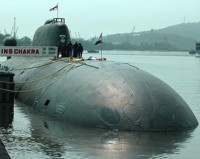
India recently inducted a leased Russian Akula-class nuclear submarine into its naval fleet, rechristening it Indian Navy Ship (INS) Chakra. This will be the Indian navy’s second such stint with a submersible nuclear vessel: In 1987, India leased a Charlie-class nuclear submarine for three years from the Soviet Union. The INS Chakra, known in the Russian navy as the K-152 Nerpa, was initially conceived in the early 1990s under Russia’s Project 971 M Shchuka-B class nuclear-powered submarine program. Though the keel of the submarine was laid in 1993, the project was delayed due to Russia’s economic hardships after the Cold […]

As unveiled in a recent Washington Post article, the Defense Advanced Research Protection Agency, or DARPA, is working to improve U.S. military operations in cyberspace with a project known as Plan X. The Defense Department agency is seeking proposals this summer for the effort, which aims to create an advanced cyberspace map as well as a system capable of launching cyberattacks and withstanding counterattacks. Chris Bronk, a fellow in information technology policy at the Baker Institute for Public Policy at Rice University, told Trend Lines that Plan X reveals how DARPA is moving toward a more agile form of research […]
